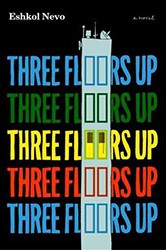Maya and her best friend, Matti, live in a village totally bereft of animals, fish, birds and insects. They only hear about these creatures — what they are called and the sounds they make — from their teacher and from an old man, who gives them small wooden figures of animals he has carved. But most of the other grownups will not speak of the animals that disappeared one night “without a trace.” When Matti dares to ask his father about that night, he will only say that things happened “that we’re not proud of ” and that “not everyone is to blame,” and then he insists that Matti “leave it alone.” But Maya and Matti are determined to solve the mystery. They decide to explore the deep dark forest surrounding their village — where they have been warned never to enter — even though they are terrified of being snatched by the dreaded mountain demon, Nehi. After a long journey, they reach the gate to Nehi’s castle. Maya goes through the gate first and eventually convinces Matti to follow her. It is a magical place, a veritable Garden of Eden, filled with singing birds and every imaginable animal. The children are reluctant to leave but Nehi, concerned that their parents will be frantic with worry, urges them to return home. His parting advice is to be sure they never catch the “mocking disease” so common in their village — the teasing and taunting, and the insults and abuse so carelessly heaped on those who are different. This gentle fable about tolerance and hope was originally published in Hebrew in 2005. The excellent, poetic feel of the translation begs to be read aloud. For ages 9 – 12.
Susan Kantor was a senior writer/editor for Girl Scouts of the USA, a children’s book editor, and a past judge for the National Jewish Book Awards in the illustrated children’s book category. She is a writer and a docent at the Rubin Museum in New York City, where she leads public and private tours.




